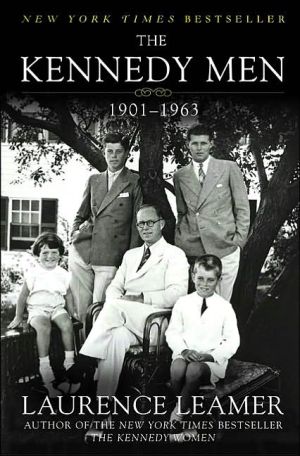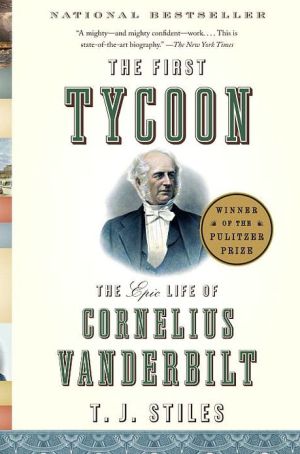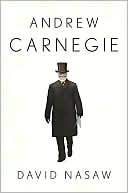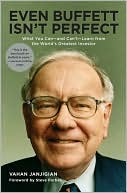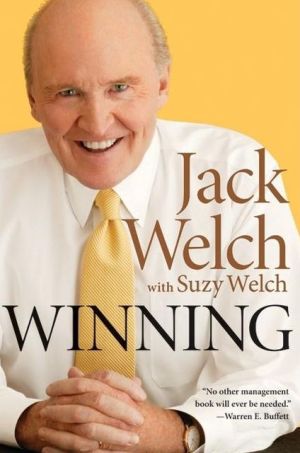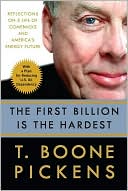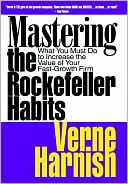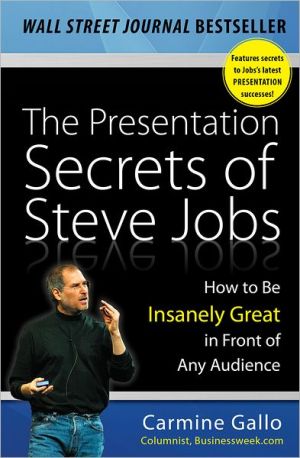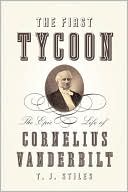The Kennedy Men: 1901-1963
The renowned biographer and New York Times bestselling author of The Kennedy Women returns with this first volume in a multigenerational history that will forever change the way America views its most famous family ...
Search in google:
Biographer Leamer complements his book on the Kennedy women with the first of two planned volumes about the men in this unique family. He begins in 1901, when patriarch Joseph P. Kennedy was a boy delivering hats to Boston society ladies, and ends with the assassination of President John F. Kennedy. Drawing on files, tapes, interviews, the private archives of John F. Kennedy's secretary, personal and political messages written by the president when he lost his voice during the 1960 campaign, secret tapes and diaries, and other new sources, he weaves personal history with the political, economic, and social events of the time. Contains b&w photographs. Annotation © Book News, Inc., Portland, OR Gus Russo The last word on America's greatest political dynasty. Draws the reader into the Kennedys as no book before.
Chapter One\ A True Man\ Twelve-year-old Joseph Patrick Kennedy may have been dressed like a young gentleman, but he walked with the bold strut of an Irish tough full of the lore of the streets. As he hurried down Webster Street, his blue eyes exuded a hungry intensity for whatever life might offer. He was taller than most boys his age and had reddish hair and an abruptness to his features that left him just short of handsome. His strong, willful face had already lost whatever boyish innocence it once held.\ Joe had been brought up on the island enclave of East Boston and knew the streets and byways with perfect acumen. Today, for the first time, he would be traveling without his family to the proud city across the bay. He would be passing through streets full of uncertainty, confronting strange new people. It was a prospect that would have filled many youths with apprehension, but nothing in Joe's demeanor suggested that he was worried about the adventure.\ Joe's mother, Mary Augusta Hickey Kennedy, had arranged for her only son to deliver hats from a prestigious shop to the great ladies of Boston. Before Joe set off on his delivery in the summer in 1901, Mary Augusta looked at her son with what the family called "Hickey eyes." They were piercing, dismissive eyes that with a mere glance could stop a vulgarity in midsentence or send a supplicant reeling backward in shame. Joe's mother admonished him to behave impeccably and to refer to himself as the proper "Joseph," not the vulgar "Joe."\ Joe rushed off down the street from the Kennedys' two-story home located in the best residential area. From up here on the highestelevation on the island, Joe could look down far below where passenger ships glided into the harbor packed with immigrants. Driven from their land by the great potato famine, between 1846 and 1849 nearly one hundred thousand Irish immigrants had arrived on Boston's pristine shores. Among them were Joe's grandparents. Patrick Kennedy had disembarked in 1849 on these very streets, where he and his bride, Bridget Murphy, set up residence in a tiny apartment.\ After only nine years in East Boston, Joe's grandfather died. He left his thirty-seven-year-old widow with four children under the age of eight and an estate of seventy-five dollars. Bridget worked first as a servant but eventually found a job in a small variety store only a few blocks from where Joe now walked. In what was a difficult accomplishment for an immigrant widow, Bridget managed to buy the store.\ Joe found his way to the hat shop and stepped up into the horse-driven wagon. As the driver guided the horse through the streets, the air was full of the stench of horse manure, the foul odor of rendering plants, the fumes of the steamers, the acrid malodor of the New England Pottery Company, and the smells of the Atlantic Steel Works.\ The carriage rolled toward the mainland ferry, passing numerous taverns, dark havens that marked their presence by small signs. If Joe's father, Patrick Joseph "P. J." Kennedy, had set a symbol of his success on his mantelpiece, it would have been a humble glass of beer. As a youth, P. J. worked a short while as a stevedore. Then P. J.'s mother had grubstaked her only son to open a pub. As for her daughters, Bridget followed the pattern of her people and her time. She sent one daughter off to work in the jute mills and settled for another to become a shirtmaker, while she did everything for her son.\ P. J. drank only enough so that he would not appear a parsimonious sort, his shot glass filled not with whiskey but with beer. In P. J.'s tavern, as in most others in East Boston, the talk was usually of politics. P. J. carefully built his clientele, expanded into the wholesale liquor business, and entered politics as a state legislator. Favors were the mortar of P. J.'s career, and he built his career one brick at a time.\ By the time Joe was born, P. J. was the Democratic ward boss for East Boston, one of the most powerful political figures in the city. With his husky figure and handlebar mustache, P. J. appeared the perfect rendering of an Irish-American politician. Every evening the petitioners arrived at the house on Webster Street, bewildered new arrivals clutching legal notices, unemployed workers looking for a city job, and widows about to be evicted.\ As the carriage turned onto Meridian Square and the ferry landing, it passed the Columbia Trust Company, an imposing four-story brick and iron building. Joe's father was a founder of this new bank, one of the many businesses in which he was involved. The East Boston Argus Advocate, in a rare moment of candor, described P. J. as "slick as grease." Slick as grease he was, and slick as grease he had to be to climb out of the prison of poverty and accumulate a fortune, all without ever moving from East Boston.\ When a husband died, P. J. was there with his condolences, but he was also there to buy the widow's house at a good price. He and his business associates bought extensive real estate and other businesses in East Boston, usually keeping their interest quiet. P. J. used his political power as a lever to push him into all kinds of deals, including a major position in the liquor wholesale business, an industry that he helped oversee in the state legislature.\ No matter how well off he became, P. J. never flaunted his wealth. Though he sailed a yacht in the harbor in the summer and wintered in Florida, he still rode the trolley and tipped his hat to the ladies.\ P. J. was a shrewd, practical man who endowed his son with...\ The Kennedy Men. Copyright © by Laurence Leamer. Reprinted by permission of HarperCollins Publishers, Inc. All rights reserved. Available now wherever books are sold.
\ From Barnes & NobleLaurence Leamer follows up his bestselling The Kennedy Women with this epic look at the male side of the quintessential American political family. Leamer has conducted five years of interviews with Kennedy experts and insiders, and has tapped into many valuable new sources of information. Highlights include: startling new details on JFK's health while in office, never-before-heard quotes from Rose Kennedy, proof of Joseph P. Kennedy's early doings, and the contents of JFK's secretary's private archives. Fully documenting what Jack, Bobby, and their brethren were up to from 1901 till 1963, Leamer's encyclopedic effort is sure to be considered one of the must-have books on this legendary clan.\ \ \ \ \ Myer Feldman"If there is only one book about the Kennedys to read this must be it."\ \ \ Burton Hersh"Leamer has . . . taken more chances than any other serious writer in the field. This is a breakthrough."\ \ \ \ \ Dan Moldea"This book is full of extraordinary revelations . . . this is serious history written by a masterful storyteller."\ \ \ \ \ Gus Russo"The last word on America's greatest political dynasty. Draws the reader into the Kennedys as no book before."\ \ \ \ \ Doctor"Leamer is a great writer and storyteller . . . An honest account of a remarkable, perhaps unique, American political family."\ \ \ \ \ Booklist"Vivid…Leamer’s writing is impressive throughout…He sets up the themes that will be the motivation and ruination of Kennedy men.\ \ \ \ \ USA Today"Leamer has a real gift for writing popular, accessible history…"\ \ \ \ \ Boston Herald"Fascinating…Absorbing…With the dramatic and powerful style of a master storyteller."\ \ \ \ \ Washington Post"Fastpaced…High heroic narrative…Leamer is well versed in the vast literature on the Kennedys…"\ \ \ \ \ Newark Star-Ledger"…One of the most valuable accounts of a family that vowed to help shape it’s country, then did."\ \ \ \ \ Washington Post“Fast-paced…High heroic narrative…Leamer is well versed in the vast literature on the Kennedys…”\ \ \ \ \ USA Today“Leamer has a real gift for writing popular, accessible history…”\ \ \ \ \ Booklist"Vivid… Leamer's writing is impressive throughout…he sets up the themes that will be the motivation and ruination of Kennedy men."\ \ \ \ \ Boston Herald“Fascinating…Absorbing…With the dramatic and powerful style of a master storyteller.”\ \ \ \ \ Newark Star-Ledger“…One of the most valuable accounts of a family that vowed to help shape it’s country, then did.”\ \ \ \ \ Burton HershLeamer has . . . taken more chances than any other serious writer in the field. This is a breakthrough.\ \ \ \ \ Gus RussoThe last word on America's greatest political dynasty. Draws the reader into the Kennedys as no book before.\ \ \ \ \ Myer FeldmanIf there is only one book about the Kennedys to read this must be it.\ \ \ \ \ Sheldon M. SternLeamer is a great writer and storyteller . . . An honest account of a remarkable, perhaps unique, American political family.\ \ \ \ \ Dan MoldeaThis book is full of extraordinary revelations . . . this is serious history written by a masterful storyteller.\ \ \ \ \ Publishers WeeklyJournalist Leamer (The Kennedy Women) provides a stirring narrative of the Kennedy men but comes up short as regards analysis of the byzantine motivations, complex psychology and persistent moral failures that lie behind the events he otherwise describes so well. Putting his own spin on well-known anecdotes (including all the most popular tales from so many other books that document Joe Sr.'s rise in business and politics, his failure to recognize the menace of Hitler and his sponsorship of his children's careers) Leamer steadfastly refuses to shed a critical light on the proclivities of Kennedy p?re. The author soft-pedals, for example, the Kennedy partriarch's well-documented anti-Semitism. The same lack of critical analysis despite Leamer's access to never-before available materials constitutes a considerable flaw throughout the book. Although offering engaging and fast-moving accounts of such events as Joe Jr.'s death and Jack's rise in politics through means both fair and foul, Leamer consistently refrains from considering the ethical implications of his stories, or the evident shortcomings in the character of more than one Kennedy. He seems, for example, to step back in awe when considering the brilliance and audacity of the Kennedys' stealing Cook County and therefore the election during the 1960 presidential race. In the final analysis, Leamer is a fan, idealizing his subjects. The result is a good read, though not necessarily a balanced history. Leamer's book is the first of a projected two-volume set. 32 pages b&w photos not seen by PW. Agent, Joy Harris. (Oct. 16) Forecast: The Kennedy Women sold 350,000 copies, and this new book will probably be the biggest Kennedy book in abig Kennedy season; it's a BOMC main selection. Leamer will be on the Today show on Oct. 17, and there will be a cover story in USA Weekend, a 15-city TV satellite tour and a 15-city radio campaign. Copyright 2001 Cahners Business Information.\ \ \ \ \ Publishers WeeklyJournalist Leamer (The Kennedy Women) provides a stirring narrative of the Kennedy men but comes up short as regards analysis of the byzantine motivations, complex psychology and persistent moral failures that lie behind the events he otherwise describes so well. Putting his own spin on well-known anecdotes (including all the most popular tales from so many other books that document Joe Sr.'s rise in business and politics, his failure to recognize the menace of Hitler and his sponsorship of his children's careers). Leamer steadfastly refuses to shed a critical light on the proclivities of Kennedy phre. The author soft-pedals, for example, the Kennedy partriarch's well-documented anti-Semitism. The same lack of critical analysis despite Leamer's access to never-before available materials constitutes a considerable flaw throughout the book. Although offering engaging and fast-moving accounts of such events as Joe Jr.'s death and Jack's rise in politics through means both fair and foul, Leamer consistently refrains from considering the ethical implications of his stories, or the evident shortcomings in the character of more than one Kennedy. He seems, for example, to step back in awe when considering the brilliance and audacity of the Kennedys' stealing Cook County and therefore the election during the 1960 presidential race. In the final analysis, Leamer is a fan, idealizing his subjects. The result is a good read, though not necessarily a balanced history. Leamer's book is the first of a projected two-volume set. (Oct.) Copyright 2003 Cahners Business Information.\ \ \ \ \ Library JournalWhile this is a work of political and family history, as any Kennedy book must be, it is best described as an extended character study of Joseph Kennedy and his sons, Joseph Jr., John, Robert, and Edward. It is not a celebration of triumphs or an undraping of frailties but instead offers much of both in an evenhanded narrative of courage, meanness, ambition, hypocrisy, patriotism, anti-Semitism, duty, and wantonness. Few tales can be more familiar, yet the writing is always tight and often graceful. How the men of this family lived their lives both publicly and privately is the real subject of this book, even as the cinema of Leamer's plot projects scenes featuring the likes of Roosevelt, King, Monroe, Castro, and Nixon. Although Leamer aims primarily at a general audience, scholars will take note of his considerable primary research, in printed and recorded material, and dozens of his own interviews. Worthy of being placed on the same shelf with Doris Kearns Goodwin's The Fitzgeralds and the Kennedys, this book follows Leamer's The Kennedy Women and precedes a planned second volume. For all libraries. [Previewed in Prepub Alert, LJ 6/15/01.] Robert F. Nardini, Chichester, NH Copyright 2001 Cahners Business Information.\ \
